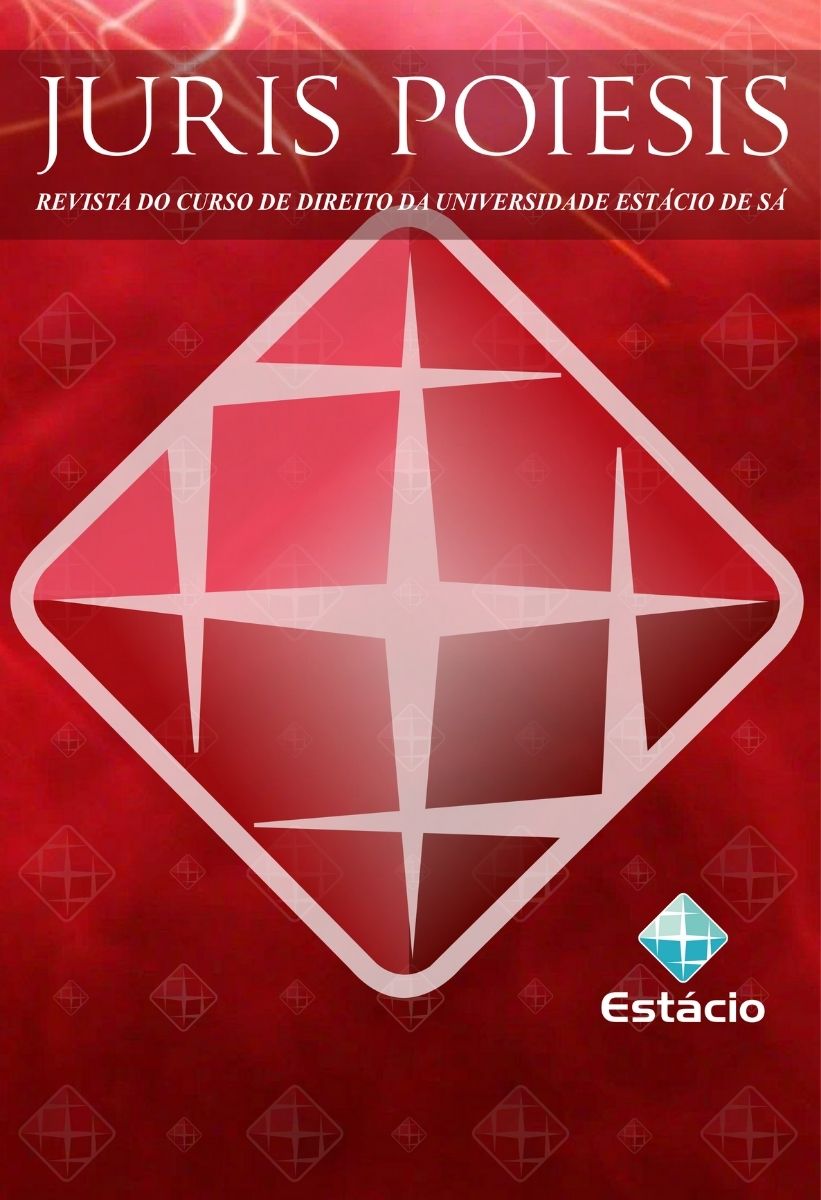A (IN)COMPATIBILIDADE ENTRE A METODOLOGIA DO TRANSCONSTITUCIONALISMO E A HERMENÊUTICA DIATÓPICA
DOI:
https://doi.org/10.5935/27.42.2024.11880Keywords:
Transconstitucionalismo, Hermenêutica Diatópica, Sociedade mundial, Direitos HumanosAbstract
The perception of a global society brought with it new forms of interaction between different normative orders. Sometimes, the cultural differences between each normative order involved in a conflict can seem irreconcilable. Transconstitutionalism then proposes conversations to resolve constitutional conflicts between these different legal orders, far from imperialist or imposing perspectives, focusing on valuing an external perspective. In the same sense, diatopical hermeneutics proposes the resolution of conflicts involving human rights, in a third way to the clash between cultural universalism and relativism. In this context, we sought to answer whether the methodology of transconstitutionalism, according to the theory of Marcelo Neves, and diatopical hermeneutics, proposed by Boaventura de Sousa Santos, would be compatible and dialogue with each other. To this end, the study was structured into three sections, namely: (i) considerations about global society and its challenges; (ii) definitions and proposals for transconstitutionalism in this context; and (iii) analysis of diatopic hermeneutics and comparison with the methodology of transconstitutionalism. The methodological procedure used in this article was based on qualitative research and inductive, deductive and dialectical reasoning between the relevant theoretical frameworks, finding, in the end, that diatopical hermeneutics, despite distinctions in the object of study, corresponds with the methodology of transconstitutionalism, with both theories guided by inclusive, plural, cooperative and hierarchy-free dialogue, and can be used in a complementary way in resolving human rights conflicts in the multilevel global system.
References
APPEL, Karl-Otto. La etica del discurso ante el desafio de la filosofia latinoamericana de la liberación. In: Revista Reflexão, Campinas, nº. 63, p.44-68, set. /dez., 1995, p. 66-67. Disponível em: <https://periodicos.puc-campinas.edu.br/reflexao/article/view/11478/8869>. Acesso em: 06. ago. 2024.
ARAUJO, Felipe Nascimento; PARRA, Diego Andrés. Os limites do diálogo intercultural em contextos de guerra interétnica e pluralismo jurídico: o caso dos Waorani e Tagaeri-Taromenane no Equador. Boletim do Museu Paraense Emílio Goeldi. Ciências Humanas [online]. 2020, v. 15, n. 3 , e20190154. Disponível em: <https://doi.org/10.1590/2178-2547-BGOELDI-2019-0154>. Acesso em: 09 ago. 2024.
CASTELLS, Manuel. A era da informação: economia, sociedade e cultura. 3. ed. São Paulo: Paz e Terra, 2000.
FACHIN, Melina Girardi. Constitucionalismo multinível: diálogos e(m) direitos humanos. Revista Ibérica do Direito, [S. l.], v. 1, n. 1, p. 53–68, 2021. Disponível em: https://www.revistaibericadodireito.pt/index.php/capa/article/view/26. Acesso em: 10 ago. 2024.
GARGARELLA, Roberto. El derecho como una conversación entre iguales: Qué hacer para que las democracias contemporáneas se abran –por fin– al diálogo ciudadano (Derecho y Política). Buenos Aires: Siglo XXI Editores, 2021. Edição do Kindle.
GUSTIN, Miracy Barbosa de Sousa; DIAS, Maria Tereza Fonseca; NICÁCIO, Camila Silva. (Re)pensando a pesquisa jurídica: teoria e prática. 5. ed. São Paulo: Almedina, 2020.
HABERMAS, Jürgen. Teoria do agir comunicativo, 1: racionalidade da ação e racionalização social. Tradução de Paulo Astor Soethe. Revisão da tradução por Flávio Beno Siebeneichler. São Paulo: Ed. WMF Martins Fontes, 2012.
HABERMAS, Jürgen. Teoria do agir comunicativo, 2: sobre a crítica da razão funcionalista. Tradução de Flávio Beno Siebeneichler. São Paulo: Ed. WMF Martins Fontes, 2012.
HONNETH, Axel. Reificação: um estudo de teoria do reconhecimento. Tradução de Rúrion Melo. São Paulo: Ed. Unesp, 2018.
LOUGHLIN, Martin. Against Constitutionalism. Harvard University Press, 2022. Edição do Kindle.
NEVES, Marcelo. Transconstitucionalismo. São Paulo: Editora WMF Martins Fontes, 2009.
ORGANIZAÇÃO INTERNACIONAL DO TRABALHO. Convenção nº. 107. <https://www.oas.org/dil/port/1957%20Conven%C3%A7%C3%A3o%20sobre%20Povos%20Ind%C3%ADgenas%20e%20Tribais.%20(Conven%C3%A7%C3%A3o%20OIT%20n%20%C2%BA%20107).pdf>. Acesso em 30 jan. 2024.
ORGANIZAÇÃO INTERNACIONAL DO TRABALHO. Convenção nº. 169. Disponível em: <https://www.oas.org/dil/port/1989%20Conven%C3%A7%C3%A3o%20sobre%20Povos%20Ind%C3%ADgenas%20e%20Tribais%20Conven%C3%A7%C3%A3o%20OIT%20n%20%C2%BA%20169.pdf>. Acesso em 30 jan. 2024.
ORGANIZAÇÃO DOS ESTADOS AMERICANOS. Declaração Americana sobre os Direitos dos Povos Indígenas, de 15 de junho de 2016. Disponível em: < https://www.oas.org/en/sare/documents/DecAmIND_POR.pdf>. Acesso em 30 jan. 2024.
PINHEIRO, Patrícia Peck. Direito digital. 5. ed. São Paulo: Saraiva, 2013.
PONTES FILHO, Raimundo Pereira. Logospirataria na Amazônia Legal. Universidade Federal do Amazonas, 2016.
SANTOS, Boaventura de Sousa. Direitos humanos, democracia e desenvolvimento. São Paulo: Cortez, 2013.
SANTOS, Boaventura de Sousa. Para uma revolução democrática da justiça. 3. ed. São Paulo: Cortez, 2011.
SANTOS, Boaventura de Sousa. Uma concepção multicultural de direitos humanos. Lua Nova, São Paulo, n. 39, p. 105-124, 1997. Disponível em <http://www.scielo.br/scielo.php?script=sci_arttext&pid =S0102-64451997000100007&lng=pt&nrm=iso>. Acesso em 30 jan. 2024.
SCHAFF, Adam. A Sociedade Informática: as consequências sociais da segunda revolução industrial. São Paulo: UNESP, 1996.
WAGNER, Daize Fernanda. Dez anos após a entrada em vigor da Convenção 169 da OIT no Brasil: um olhar sob a perspectiva da efetividade. In: CONPEDI; UFSC. (Org.). Direito Internacional dos Direitos Humanos II. 1. ed. Florianópolis: CONPEDI, 2014.
Downloads
Published
How to Cite
Issue
Section
License
Authors of papers published in this journal declare to acklowledge and agree with the following rules:
1. The submitting of any colaboration implies on free and complete assignment of the copyrights to the journal, which is not obligated to return the originals of submitted colaborations.
2. Published papers represent the expression of the author’s point of view, not repressenting an oficial position of Juris Poiesis jornal, or Univesidade Estacio de Sas’s.


